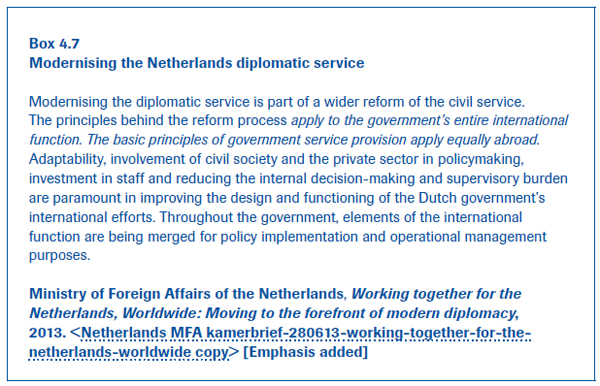Diplomacy in the Digital Age
- By Brian Hocking and Jan Melissen
 0 Comment(s)
0 Comment(s) Print
Print E-mail China.org.cn, October 26, 2015
E-mail China.org.cn, October 26, 2015
|
|
Digitalization and the MFA subsystem
It is hard to generalize about foreign ministries and their response to change, but it is obvious that communication structures and processes are the key resource for all MFAs and their diplomatic networks. How has digitalization impacted on the MFA subsystem within the broader national diplomatic system? It has distinctive characteristics that are a product of its historical evolution, culture, role perceptions and the mix of tasks that have accrued to it over time. As we have seen, in the nineteenth century the electric telegraph interacted with broader social, bureaucratic and political changes impacting on foreign ministries. Allowing for the obvious differences, there is a striking resemblance in the issues posed by digital technologies:
• Do they change the roles and relationships between the centre (MFA) and the peripheries (diplomatic posts) of the subsystem?
• What consequences do they have for the roles and role perceptions of professional diplomats?
• How are rules developed and risks managed in developing online diplomatic strategies?
• What are the emerging criteria for success in developing and evaluating digital capacity and performance?
Enter Hood and Margetts' principle of cybernetic systems. Their argument is that any system when relating to and managing its environment requires two sets of tools: 'detectors' – all the instruments government uses for acquiring and processing information, and effectors – the range of tools available for making an impact on the outside world. The range of tools varies both between and within governments but comprises a broad set of categories:
• Nodality: the property of being a significant node in an information network.
• Authority: the possession of legal or official power relevant to the performance of functions.




Go to Forum >>0 Comment(s)